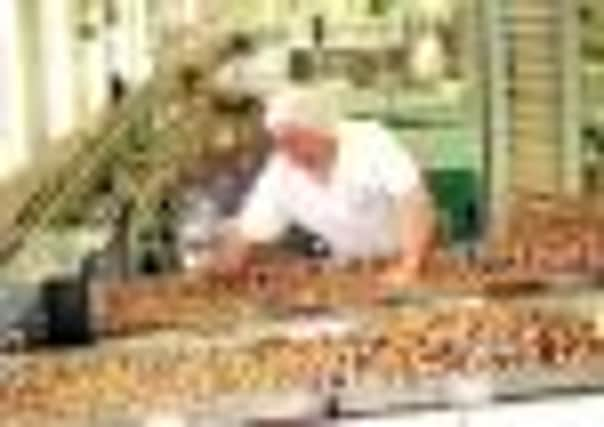George Kerevan: Market wobble is surely a welcome correction


Nevertheless, this week’s flight from risk seemed especially perverse, given the reasonable good economic data to hand.
At a global level, oil prices showed the first signs of easing in several months, though supply conditions remain tight. The world desperately needs a break in oil inflation to ease the impact of inflation on real incomes, and thus boost consumer demand.
Advertisement
Hide AdAdvertisement
Hide AdThe March US employment figures, published yesterday, saw 120,000 non-farm jobs added to the economy. That was well below expectations and only half the February gain. Unemployment remains over 12 million, but nevertheless, American employment continues upward.
As a result, US consumers are more confident – in February, they increased spending by the most in seven months. The consensus prediction for US GDP growth in 2012 is a decent 2.5 per cent.
By contrast, in the UK, seemingly we had a shock 1 per cent fall in manufacturing output in February, according to the Office for National Statistics.
I can’t help feeling there is something rogue about this figure, as it runs contrary to what the rest of the economy is telling us. For instance, the normally reliable Markit/CIPS Purchasing Managers’ Index for manufacturing jumped to 52.1 in March, with new orders rising at their fastest pace for a year. Even if there are hiccups in the manufacturing sector (perhaps caused by high oil prices) I’d still bet that the UK is growing positively, if slowly.
All of which makes this week’s wobbles on the equity and commodities markets rather strange. One explanation being offered for the sell-off lies in a “sudden” appreciation that neither the US Federal Reserve nor the Bank of England are going to pursue a fresh round of quantitative easing (QE) any time soon.
QE has kept down bond yields, making equities more attractive. It beats me why anyone should be surprised that either central bank will go slow on injecting liquidity when the economic outlook is improving.
In addition, the crisis in the eurozone resurfaced this week with the cost of sovereign borrowing rising sharply for Spain and Italy. European equities fell as a result, adding to the general gloom. But the earlier, post-Christmas drop in bond yields among the big debtor states was the result of the European Central Bank’s massive short-term loans to banks in Spain and Italy.
These loans were used to buy eurobonds and so push yields down. Now the cash has been used up, it is back to the normal crisis (especially as the Bundesbank is growling at the ECB to stop being profligate with liquidity, in case it sparks inflation in Germany). Again, why would anyone be surprised?
Advertisement
Hide AdAdvertisement
Hide AdMy guess is that the market wobbles are being influenced by a growing realisation that equities have risen a mite too high during the latest round of QE, and that a modest correction was always in the offing. Just how far any correction will go depends less on central banks than on the corporate profit statements now falling due.
Chocolate better than the real thing in eggs
ONE sector of the economy that is performing reliably this Easter is, er, chocolate eggs. America is the world’s largest consumer of Easter chocolate eggs and bunnies, with a staggering $2.15 billion (about £1.35bn) of sales in 2011. Sales are predicted to increase this year. Ditto in the UK, where we consume 200 million Cadbury Creme Eggs alone.
Fortunately, the Easter egg market is counter-cyclical. If people can’t afford a new car or a holiday, they indulge in chocolate instead, and Easter provides the perfect excuse to indulge. Even a sharp rise in the price of cocoa beans following a drought in the Ivory Coast (a major supplier) is not expected to halt the choc fest.
However, matters are less happy in Europe, where the Easter tradition favours decorating real eggs. New EU rules demanding bigger cages for battery hens have sent egg prices soaring by 55 per cent. EU egg production has dropped more than 10 per cent since the regulations came into force in January. Come Sunday, a lot of disappointed children will be hunting euro-eggs that aren’t there.